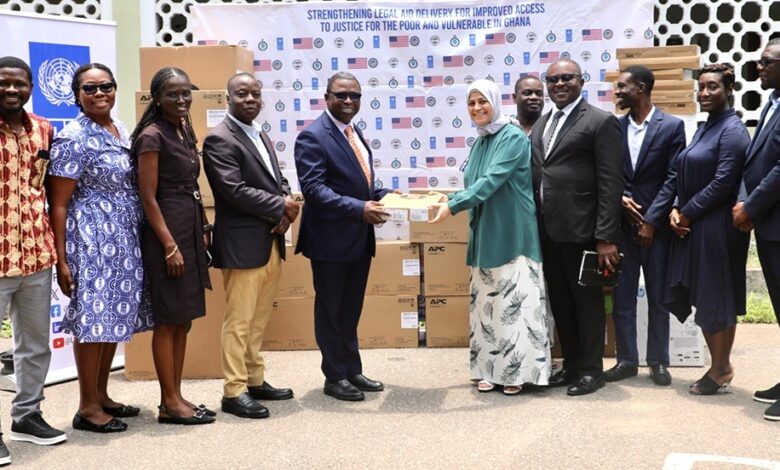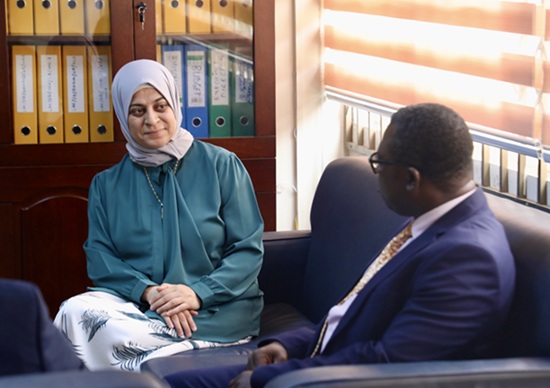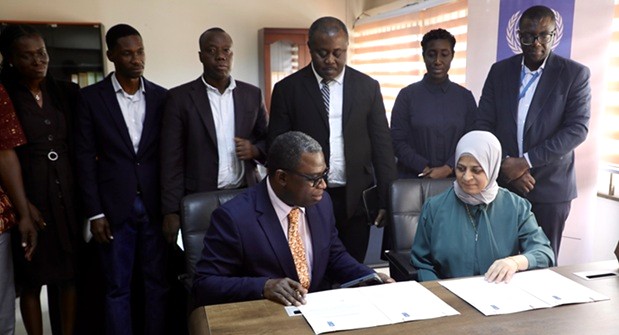A Lifeline for the Poor: UNDP Boosts Legal Aid Commission with ICT Support

For many ordinary Ghanaians, justice feels like something reserved for the rich and powerful. The poor, vulnerable, and those living in remote areas often cannot afford a lawyer, leaving them voiceless when their rights are trampled upon.
But hope is on the horizon. The United Nations Development Programme (UNDP), with support from the United States Government, has handed over ICT and office equipment worth more than USD 180,000 to the Legal Aid Commission (LAC). This includes laptops, printers, servers, and office furniture, all aimed at helping the Commission serve the ordinary Ghanaian more effectively.
For people like Adwoa, a market woman in Wa, who was cheated by a landlord but couldn’t afford a lawyer, or Kwaku, a young farmer in Kumasi who lost his land to a wealthy developer, this investment could mean one thing: justice made easier to reach.
The handover follows an assessment that revealed major gaps in the Commission’s offices across the country, making it difficult for staff to deliver timely services. With these new tools, officers will now be better resourced to attend to cases, record complaints, and provide free legal advice to those who would otherwise be ignored.

UNDP Deputy Resident Representative Shaima Hussein underscored why this matters:
“The equipment provided will continue to strengthen the Commission’s capacity to deliver access to justice for the poor and vulnerable. We call on development partners, the private sector, and civil society to join us in upscaling this vital work so no one is left behind in accessing justice.”
For the Legal Aid Commission, the gift could not have come at a better time. Executive Director, Mr. Edmund Amarkwei Foley, said the support would transform how they serve communities:
“We assure our partners that the equipment will be well maintained and used responsibly to enhance access to justice for the poor and vulnerable across Ghana.”

This initiative is more than a donation; it is a bridge between the law and the ordinary citizen. For too long, poor access to justice has meant many Ghanaians suffer in silence. With this boost, the Legal Aid Commission is better positioned to fight for fairness, equity, and dignity for all.
The call is now for more partners, such as churches, businesses, civil society, and local leaders, to support this cause. Because when justice becomes accessible to the poor, society as a whole becomes stronger, safer, and fairer.
